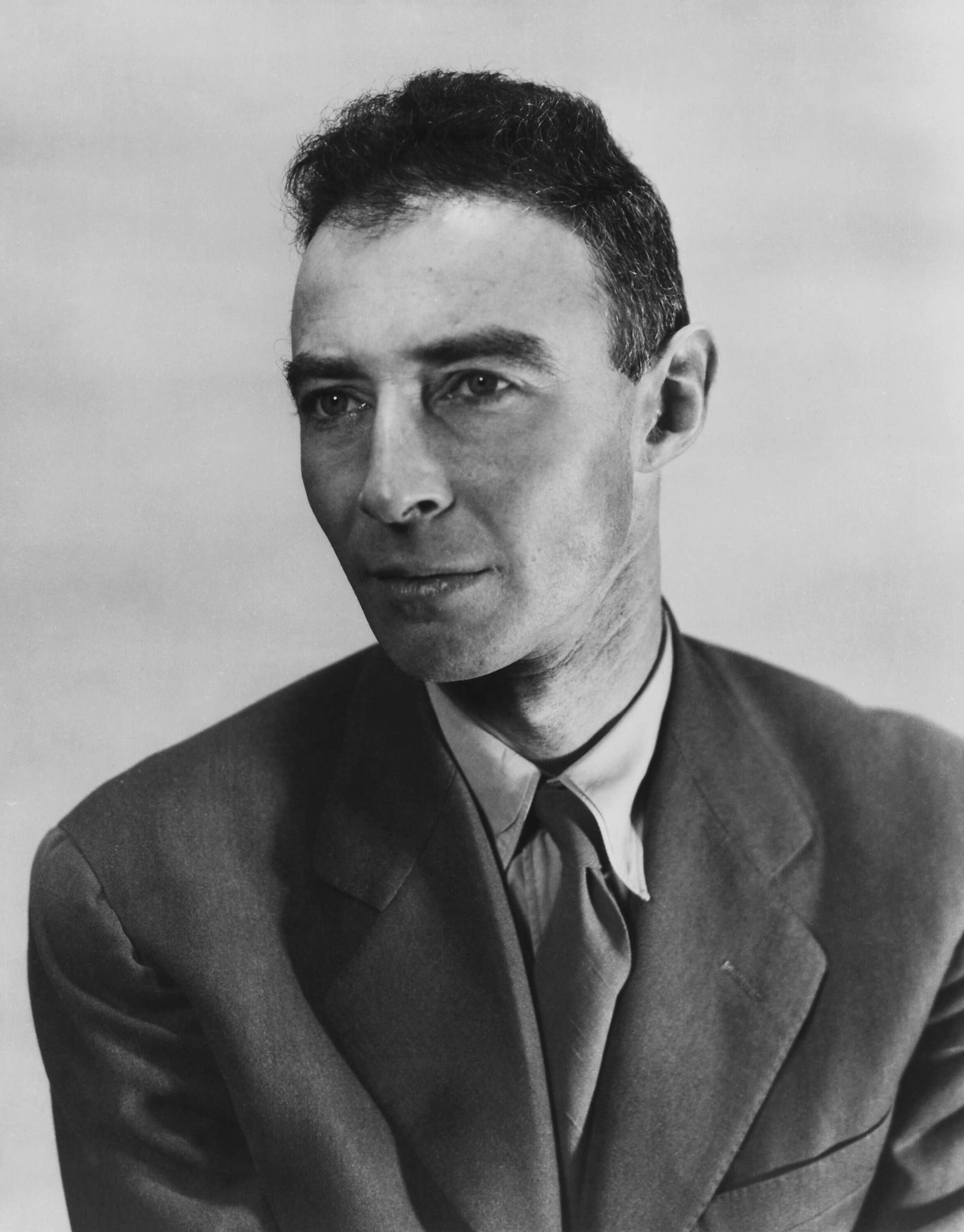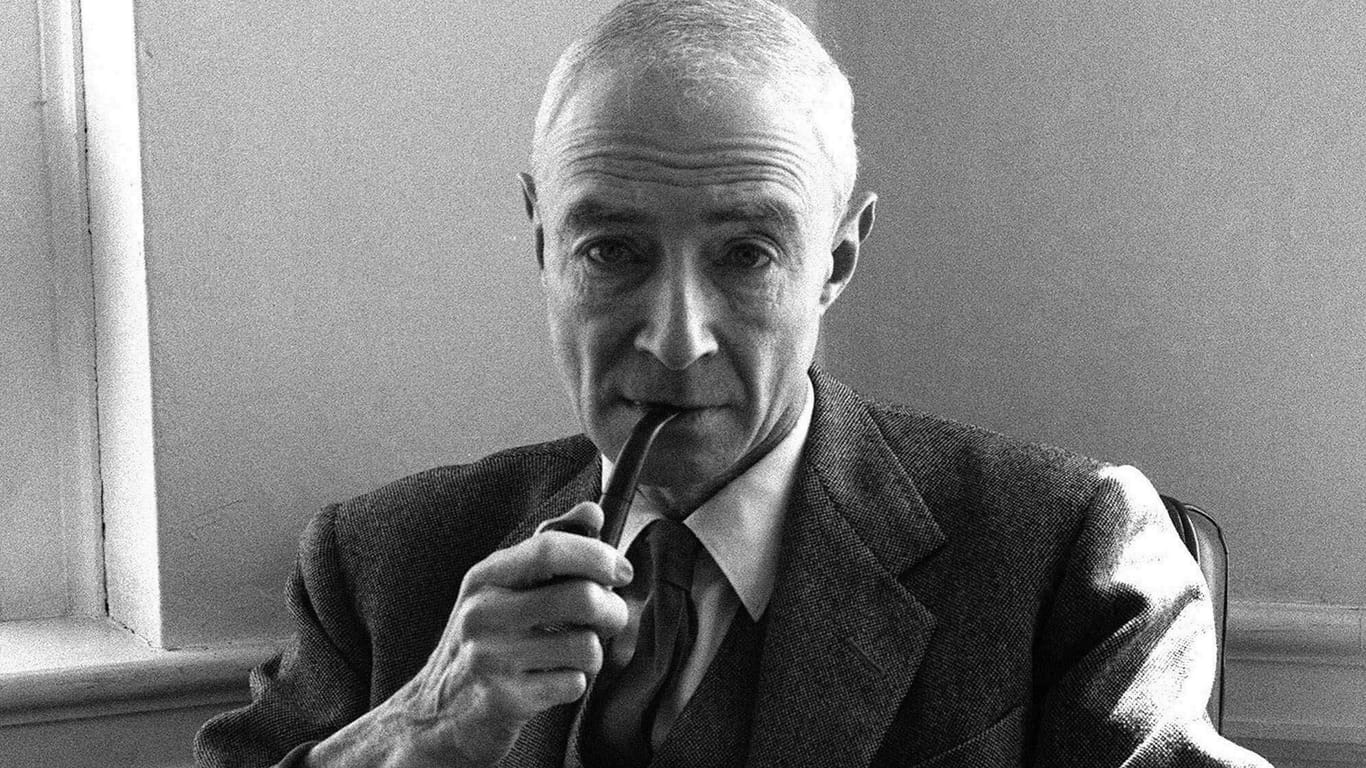From celebrated scientist to security risk for the USA: J. Robert Oppenheimer was one of the most famous physicists of his time. This is the story of the “father of the atomic bomb.”
“Like it or not, J. Robert Oppenheimer is the most important person who ever lived,” writes director Christopher Nolan in the accompanying text for his new film “Oppenheimer.” “Because if my worst fears come true, he will be the man who destroyed the world,” explains Nolan in an interview with the New York Times. Who was the man who elicited such drastic words from the director?
Julius Robert Oppenheimer was born in New York in 1904 as the son of German-Jewish immigrants . Young Robert grows up in a well-off household on the Upper West Side. Employees look after him and his brother Frank around the clock. Robert Oppenheimer later wrote that his childhood did not prepare him for the cruelties of this world.
Attempted murder and psychosis
In 1925, Oppenheimer graduated from Harvard University with a degree in chemistry and moved to the United Kingdom for research at Cambridge University. There, his dislike of his work plunged him into a severe psychosis, as a result of which he wanted to poison his tutor with an apple . A year later he is said to have tried to strangle a friend when he told him about his marriage proposal.
Oppenheimer took a break and then switched to physics. He had already become enthusiastic about the department during his time at Harvard. He quickly made a name for himself in the scene, so Max Born brought him to Göttingen as a doctoral student .
time in Germany
At the time, the University of Göttingen was a world leader in the field of quantum physics. In Germany he met some of the most famous scientists of their time. He exchanged ideas with, among others, Werner Heisenberg, Niels Bohr, Wolfgang Pauli, Paul Dirac, Fritz Houtermans and Charlotte Riefenstahl. At this time he also met Edward Teller, the later “father of the hydrogen bomb”, who also worked on the Manhattan Project.
In 1927 he received his doctorate “with distinction” under Max Born on theoretical investigations of spectra. After working in Switzerland and the Netherlands, Robert Oppenheimer returned to the USA .
Manhattan Project
He initially accepted an assistant professorship at the University of Berkeley. In the years leading up to the Second World War, Robert Oppenheimer developed into one of the most important scientists in quantum mechanics. During this time he also tried his hand at other areas, such as astrophysics.

In 1940 he was elected to the American Academy of Arts and Sciences, an honorary society for the most important figures in art and science. The attention for his work earned him the job as head of the secret Manhattan Project. The US government’s research project aimed to make military use of nuclear fission, which was discovered in 1938.
From the Medal of Honor to a security risk
The project, which cost about $ 1.9 billion and involved 150,000 people directly and indirectly, became a success. The scientists succeeded in developing and building an operational atomic bomb. After the Trinity test run on July 16, 1945, the Americans dropped an atomic bomb on Hiroshima 21 days later, on August 6, 1945. Three days later, a second bomb was dropped on Nagasaki.
The explosions killed at least 100,000 people instantly. By the end of 1945, 130,000 more died from consequential damage. The victims were almost exclusively civilians and forced laborers abducted by the Japanese army. It is difficult to say how many more were added in the following years. Six days after the drop over Nagasaki, Japan’s Emperor Hirohito announced his country’s surrender.
In the years that followed, Oppenheimer received several awards for his work. Including the Medal of Merit, the highest civilian award in the USA. But Oppenheimer himself condemned any further use of the atomic bomb and advocated international control of nuclear energy. Ever since he saw the effects on Hiroshima and Nagasaki, he became an opponent of his greatest invention.However, the USA continued to test atomic bombs. One test was even broadcast live on television in the 1950s.
As a result, Oppenheimer also campaigned against the development of the hydrogen bomb and thus opposed his old friend Edward Teller, who was significantly involved in the research. His public criticism led to a confrontation with Teller and the chairman of the US Atomic Energy Committee, Lewis Strauss.
He began to publicly defame Oppenheimer and accused him of being a spy for the Soviet Union. In the midst of the McCarthy era, the allegations weighed heavily. At the beginning of the Cold War, communism was fought rigorously within the USA. Therefore, Robert Oppenheimer was summoned to a security hearing in 1954.
He was accused of “associating with known communists,” which primarily meant his brother Frank Oppenheimer and his ex-girlfriend Jean F. Tatlock, as well as students and acquaintances from his time at Berkeley. Furthermore, he was accused of failing to carry out his duties at the Atomic Energy Agency because of his stance against the hydrogen bomb. Although it was concluded that he was certainly allowed to express his opinions freely, his campaign against the hydrogen bomb had damaged the interests of the USA.
Fallen hero
For this reason, Robert Oppenheimer’s security clearance was revoked and he was therefore excluded from secret government projects. The US public welcomed the decision. Her scientific colleagues criticized her harshly. It wasn’t until 1964 that people approached Oppenheimer again and awarded him the Atomic Energy Commission’s Prize for his services to the Manhattan Project. The recommendation for this was made by the then US President John F. Kennedy .On February 18, 1967, heavy smoker and “father of the atomic bomb,” J. Robert Oppenheimer, died of throat cancer. However, he was not fully rehabilitated until 55 years after his death. In December 2022, US Secretary of Energy Jennifer Granholm finally reversed the decision to revoke Robert Oppenheimer’s security clearance.

